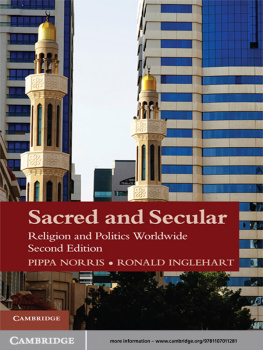The Myth of Religious Violence
The Myth of Religious Violence
Secular Ideology and the Roots of Modern Confl ict
w illia m t. c avanaugh
2009
Oxford University Press, Inc., publishes works that further
Oxford Universitys objective of excellence
in research, scholarship, and education.
Oxford New York
Auckland Cape Town Dar es Salaam Hong Kong Karachi
Kuala Lumpur Madrid Melbourne Mexico City Nairobi
New Delhi Shanghai Taipei Toronto
With offi ces in
Argentina Austria Brazil Chile Czech Republic France Greece
Guatemala Hungary Italy Japan Poland Portugal Singapore
South Korea Switzerland Thailand Turkey Ukraine Vietnam
Copyright 2009 Oxford University Press, Inc.
Published by Oxford University Press, Inc.
198 Madison Avenue, New York, New York 10016
www.oup.com
Oxford is a registered trademark of Oxford University Press
All rights reserved. No part of this publication may be reproduced,
stored in a retrieval system, or transmitted, in any form or by any means,
electronic, mechanical, photocopying, recording, or otherwise,
without the prior permission of Oxford University Press.
Library of Congress Cataloging-in-Publication Data
Cavanaugh, William T.
The myth of religious violence: secular ideology and the roots of modern confl ict / William T. Cavanaugh.
p. cm.
Includes bibliographical references and index.
ISBN 978-0-19-538504-5
1. ViolenceReligious aspects. 2. Religion and politicsWestern countries.
3. ReligionPhilosophyPolitical aspectsWestern countries. I. Title.
BL65.V55C39 2009
201.76332dc22 2008053815
9 8 7 6 5 4 3 2 1
Printed in the United States of America
on acid-free paper
For Eamon
Acknowledgments
I began this book as a visiting fellow at the Kellogg Institute for International Studies at the University of Notre Dame. Special thanks to Scott Mainwaring, Chris Welna, and Tim Scully for their kind hospitality while I was in residence there.
Several colleagues and friends have read parts of the manuscript at various stages of completion and provided astute comments or made useful bibliographic suggestions. Thanks to Tom Berg, Mike Budde, David Cunningham, Tim Fitzgerald, Fred Gedicks, Brad Gregory, Stanley Hauerwas, Mike Hollerich, Russell McCutcheon, Tom Rochon, John Roth, and Scott Thomas for their generous help.
I presented parts of the argument of this book in lectures to various audiences at universities far and wide, and I have benefi ted enormously from their comments and critiques. Thanks are due to Michael Bartley at Oklahoma State, Michael Minch at Utah Valley University, James Sweeney at Cambridge, Michael Budde at DePaul, Peter Casarella at Catholic University, Fred Lawrence at Boston College, Ben King at Harvard, Mark OConnor of the Dom Helder Camara lecture series in Australia, Jonas Idestrm of the Church of Sweden, Arne Rasmussen at Ume University, Chris Keller at the Film, Faith, and Justice Forum in Seattle, and Linell Cady and Matt Correa at Arizona State for inviting me to speak. I would also like to express gratitude to the many other people at these venues who gave me gracious hospitality and facilitated my visits in other ways.
Thanks to Ry Parrish-Siggelkow at St. Thomas, who provided crucial help in editing the manuscript in its fi nal phase.
Finally, thanks to my wife, Tracy Rowan, and our sons for giving me a happy place to come home to when I got tired of religion and violence. This book is dedicated to my son Eamon, my little tiger.
The Myth of Religious Violence
The idea that religion has a tendency to promote violence is part of the conventional wisdom of Western societies, and it underlies many of our institutions and policies, from limits on the public role of churches to efforts to promote liberal democracy in the Middle East. What I call the myth of religious violence is the idea that religion is a transhistorical and transcultural feature of human life, essentially distinct from secular features such as politics and economics, which has a peculiarly dangerous inclination to promote violence. Religion must therefore be tamed by restricting its access to public power. The secular nation-state then appears as natural, corresponding to a universal and timeless truth about the inherent dangers of religion.
In this book, I challenge this piece of conventional wisdom, not simply by arguing that ideologies and institutions labeled secular can be just as violent as those labeled religious, but by examining how the twin categories of religious and secular are constructed in the fi rst place. A growing body of scholarly work explores how the category religion has been invented in the modern West and in colonial contexts according to specifi c confi gurations of political power. In this book, I draw on this scholarship to examine how timeless and transcultural categories of religion and the secular are used in arguments that religion causes violence. I argue that there is no transhistorical and transcultural essence of religion and that essentialist attempts to separate religious violence from secular violence are incoherent. What counts as religious or secular in any given context is a function of different confi gurations of power. The question then becomes why such essentialist constructions are so common. I argue that, in what are called Western societies, the attempt to create a transhistorical and transcultural concept of religion that is essentially prone to violence is one of the foundational legitimating myths of the liberal nation-state. The myth of religious violence helps to construct and marginalize a religious Other, prone to fanaticism, to contrast with the rational, peace-making, secular subject. This myth can be and is used in domestic politics to legitimate the marginalization of certain types of practices and groups labeled religious, while underwriting the nation-states monopoly on its citizens willingness to sacrifi ce and kill. In foreign policy, the myth of religious violence serves to cast nonsecular social orders, especially Muslim societies, in the role of villain. They have not yet learned to remove the dangerous infl uence of religion from political life. Their violence is therefore irrational and fanatical. Our violence, being secular, is rational, peace making, and sometimes regrettably necessary to contain their violence. We fi nd ourselves obliged to bomb them into liberal democracy.
Especially since September 11, 2001, there has been a proliferation of scholarly books by historians, sociologists, political scientists, religious studies professors, and others exploring the peculiarly violence-prone nature of religion. At the same time, there is a signifi cant group of scholars who have been exploring the ideological uses of the construction of the term religion in Western modernity. On the one hand, we have a group of scholars who are convinced that religion as such has an inherent tendency to promote violence. On the other hand, we have a group of scholars who question whether there is any religion as such, except as a constructed ideological category whose changing history must be carefully scrutinized.
There is much more at stake here than academics haggling over defi nitions. Once we begin to ask what the religion-and-violence arguments mean by religion, we fi nd that their explanatory power is hobbled by a number of indefensible assumptions about what does and does not count as religion. Certain types of practices and institutions are condemned, while others
nationalism, for exampleare ignored. Why? My hypothesis is that religionand-violence arguments serve a particular need for their consumers in the West. These arguments are part of a broader Enlightenment narrative that has invented a dichotomy between the religious and the secular and constructed the former as an irrational and dangerous impulse that must give way in public to rational, secular forms of power. In the West, revulsion toward killing and dying in the name of ones religion is one of the principal means by which we become convinced that killing and dying in the name of the nation-state Schmitt worried that a merely procedural liberalism would deprive the political of the friend-enemy antagonism, which would break out instead in religious, cultural, and economic arenas. Contemporary liberalism has found its defi nitive enemy in the Muslim who refuses to distinguish between religion and politics. The danger is that, in establishing an Other who is essentially irrational, fanatical, and violent, we legitimate coercive measures against that Other.
Next page
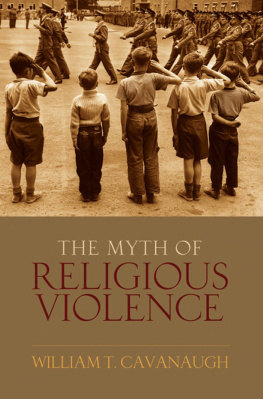

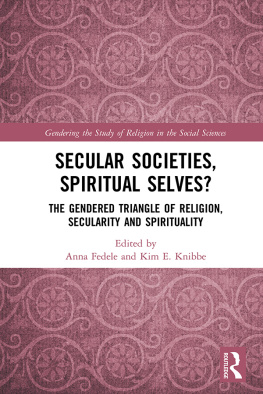
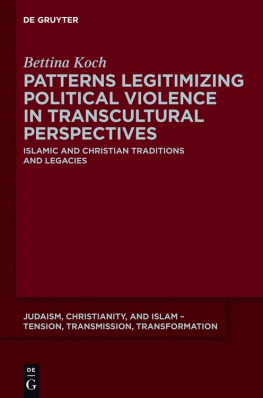
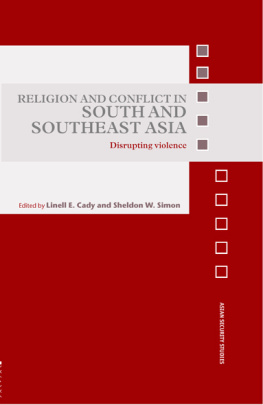
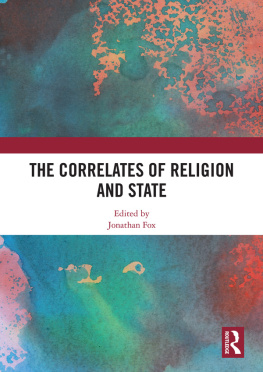
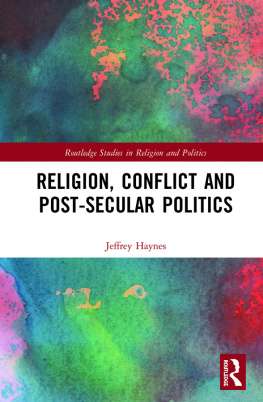
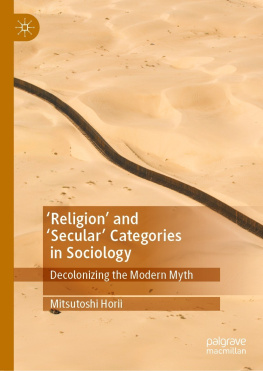
![Blackford - Freedom of religion [and] the secular state](/uploads/posts/book/167779/thumbs/blackford-freedom-of-religion-and-the-secular.jpg)
